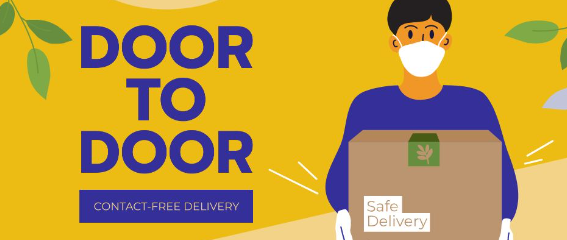In today’s fast-paced world, technology has infiltrated nearly every aspect of our lives, making our day-to-day activities more convenient and efficient. One such area that has witnessed a significant transformation is healthcare, with the advent of medicine delivery services. These services have revolutionized the way we access and receive essential medications, ensuring convenience, accessibility, and improved patient outcomes. In this article, we will explore the benefits, challenges, and future prospects of medicine delivery singapore services.
The Emergence of Medicine Delivery Services:
Traditionally, patients had to visit a local pharmacy or hospital to obtain their prescribed medications. This process often involved long waiting times, travel inconveniences, and restricted availability during odd hours. Recognizing these challenges, medicine delivery services have emerged as a viable solution, leveraging technology to bridge the gap between patients and pharmacies.

Benefits of Medicine Delivery Services:
- Convenience: One of the primary advantages of medicine delivery services is the convenience they offer. Patients can now order their medications from the comfort of their homes and have them delivered directly to their doorstep. This eliminates the need for time-consuming visits to the pharmacy, especially for individuals with limited mobility, chronic illnesses, or those residing in remote areas.
- Accessibility: Medicine delivery services ensure accessibility to vital medications for individuals who may face barriers due to physical disabilities, lack of transportation, or living in underserved areas. These services break down geographical boundaries, allowing patients to access their prescribed medications regardless of their location.
- Time-saving: With medicine delivery services, patients can save valuable time that would otherwise be spent traveling to and waiting at a pharmacy. This time-saving aspect is particularly beneficial for busy individuals, caregivers, and the elderly, enabling them to focus on their well-being and overall quality of life.
- Medication Adherence: Non-adherence to prescribed medications is a significant challenge in healthcare. However, medicine delivery services contribute to improved adherence rates by ensuring a seamless supply of medications. Patients receive timely reminders for refills, reducing the risk of interruptions in their treatment plans and promoting better health outcomes.
Challenges and Considerations:
While medicine delivery services offer numerous advantages, they also come with certain challenges and considerations that need to be addressed:
- Regulatory Compliance: Medicine delivery services must comply with stringent regulations to ensure patient safety and maintain the integrity of the healthcare system. Adhering to laws regarding prescription handling, storage, and transportation is crucial to avoid counterfeit drugs and maintain the quality of medications.
- Medication Storage and Handling: Proper storage and handling of medications are essential to maintain their effectiveness and safety. Medicine delivery services need to establish robust protocols to ensure appropriate temperature control, protection from light, and avoidance of damage during transit.
- Privacy and Data Security: Patient privacy and data security are paramount when dealing with sensitive healthcare information. Medicine delivery services must prioritize secure platforms, encrypted communication channels, and strict data protection measures to safeguard patient data and maintain confidentiality.
Future Prospects:
The future of medicine delivery services looks promising, with ongoing advancements in technology and a growing demand for accessible healthcare. Here are some potential developments:
- Integration of Artificial Intelligence (AI): AI-powered systems can help streamline medicine delivery operations, optimizing route planning, and delivery logistics. AI algorithms can consider factors such as traffic, weather, and real-time demand to enhance efficiency and reduce delivery times.
- Drones and Autonomous Vehicles: Delivery services using drones and autonomous vehicles have already been tested in some regions. These innovations have the potential to revolutionize medicine delivery, especially in rural or hard-to-reach areas, where traditional transportation may be limited.
- Expansion of Telehealth: Telehealth, which allows patients to consult healthcare professionals remotely, can be integrated with medicine delivery services. This holistic approach ensures that patients not only receive the necessary medications but also have access to expert medical advice, thereby improving overall patient care.
Conclusion:
Medicine delivery services have brought about a paradigm shift in the healthcare industry, offering convenience, accessibility, and improved medication adherence to patients. With the potential for further technological advancements and a greater emphasis on patient-centric care, these services are poised to play an increasingly significant role in the future of healthcare. By overcoming challenges and addressing regulatory requirements, medicine delivery services can continue to enhance patient experiences, promote better health outcomes, and contribute to a more inclusive and efficient healthcare system.
